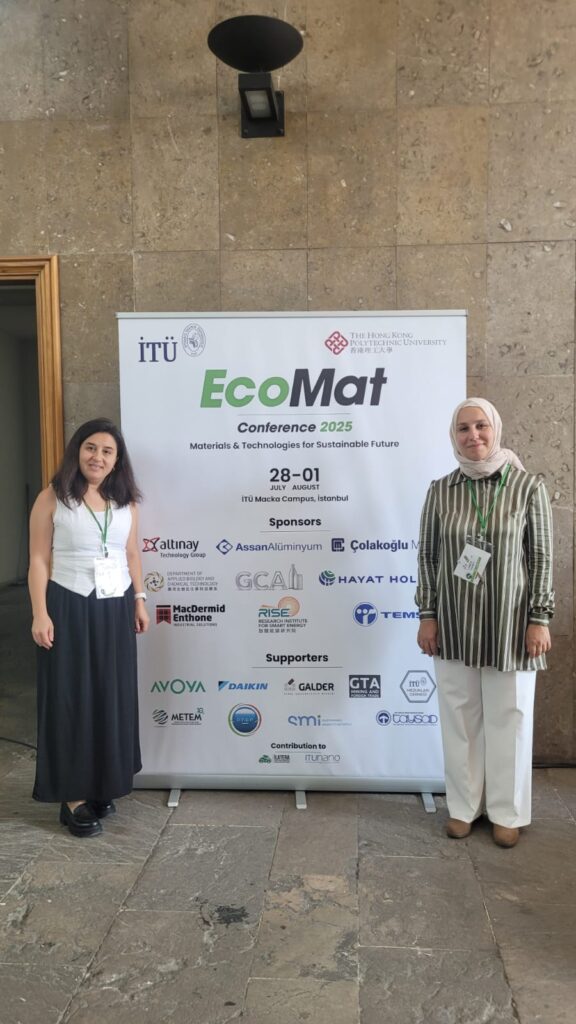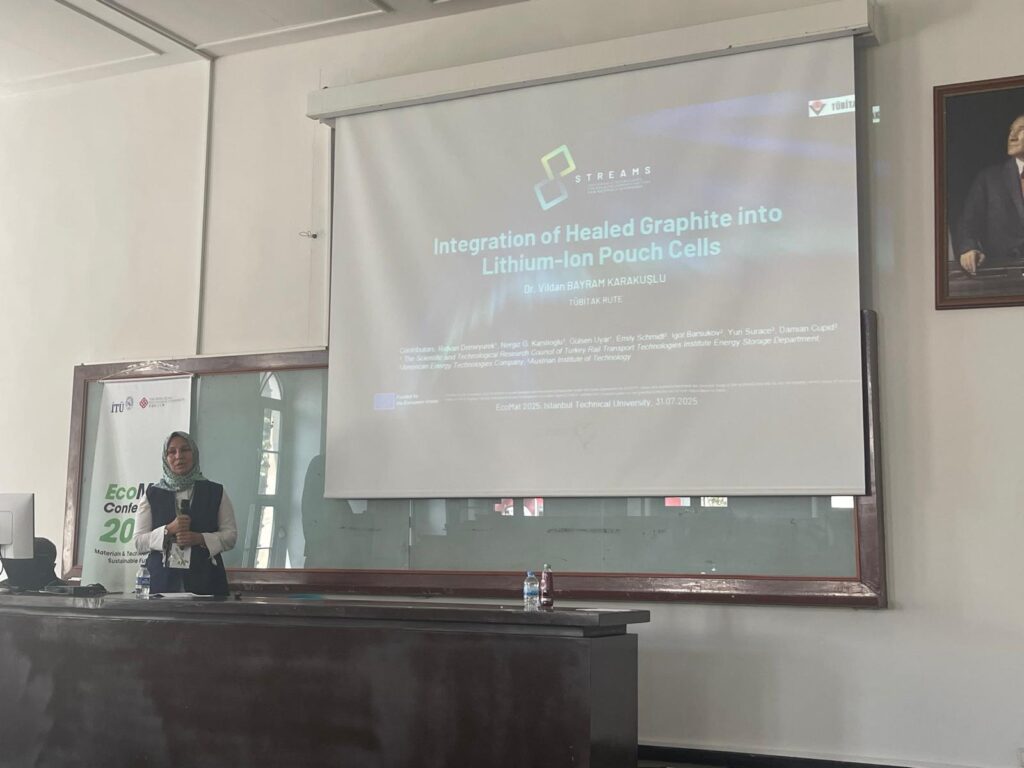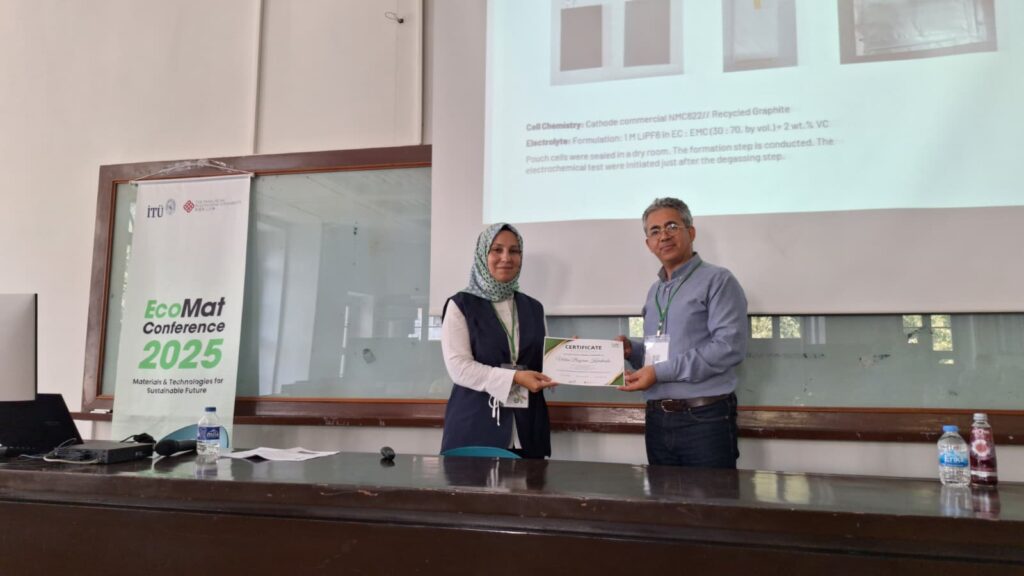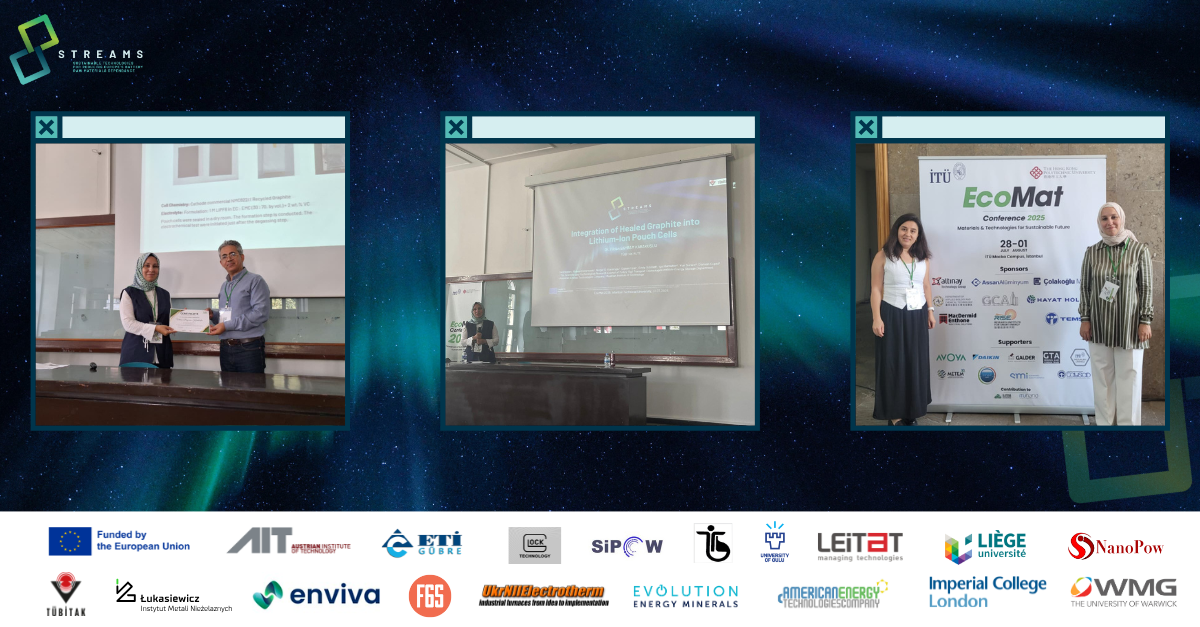From July 28 to August 1, 2025, Istanbul hosted EcoMat 2025, an international conference dedicated to Materials & Technologies for a Sustainable Future. Organised at Istanbul Technical University, the event brought together scientists, engineers, entrepreneurs, NGOs, and policy makers to explore practical solutions for today’s environmental and industrial challenges. Topics included sustainable materials, energy efficiency, circular economy, waste valorisation, and low-impact production processes.
Among the key areas of focus this year: energy storage and how to design more circular, low-emission battery technologies. This is where TÜBİTAK, a core research partner of STREAMS, made a strong contribution.
Dr. Vildan Bayram Karakuşlu, together with colleagues Rıdvan Demiryürek and Nergiz Gürbüz Karslıoğlu, presented the latest results from their work at the Energy Storage Department of TÜBİTAK’s Rail Transport Technologies Institute. Their presentation focused on the integration of “healed graphite”, graphite recovered and rejuvenated from end-of-life batteries, into lithium-ion pouch cells.
From waste to high-performance batteries
Graphite is the dominant anode material used in lithium-ion batteries, but it is also associated with a high environmental cost. TÜBİTAK team proposed a sustainable alternative: recovering used graphite through a direct recycling process. This approach preserves the material’s structural integrity while reducing waste and dependency on virgin raw materials.
The healed graphite was first thoroughly examined to confirm its quality, then used to produce new battery electrodes. These were tested in real conditions and delivered very good results, showing strong capacity and stable performance over time. Impressively, the recycled material performed almost as well as standard synthetic graphite used in today’s batteries.
These findings demonstrate that recycled graphite can be successfully reintegrated into industrial-scale battery production, supporting both cost reduction and environmental goals.
Supporting STREAMS objectives
This research fully aligns with our project’s mission: strengthening Europe’s battery materials supply chain while embracing circular economy principles. It also contributes to the broader goal of helping the EU meet its regulatory targets for recycled content in batteries by 2031.
By participating in EcoMat 2025, TÜBİTAK helped showcase how applied research can deliver real-world solutions for sustainability and how collaboration across countries and disciplines can accelerate the transition to greener technologies.




